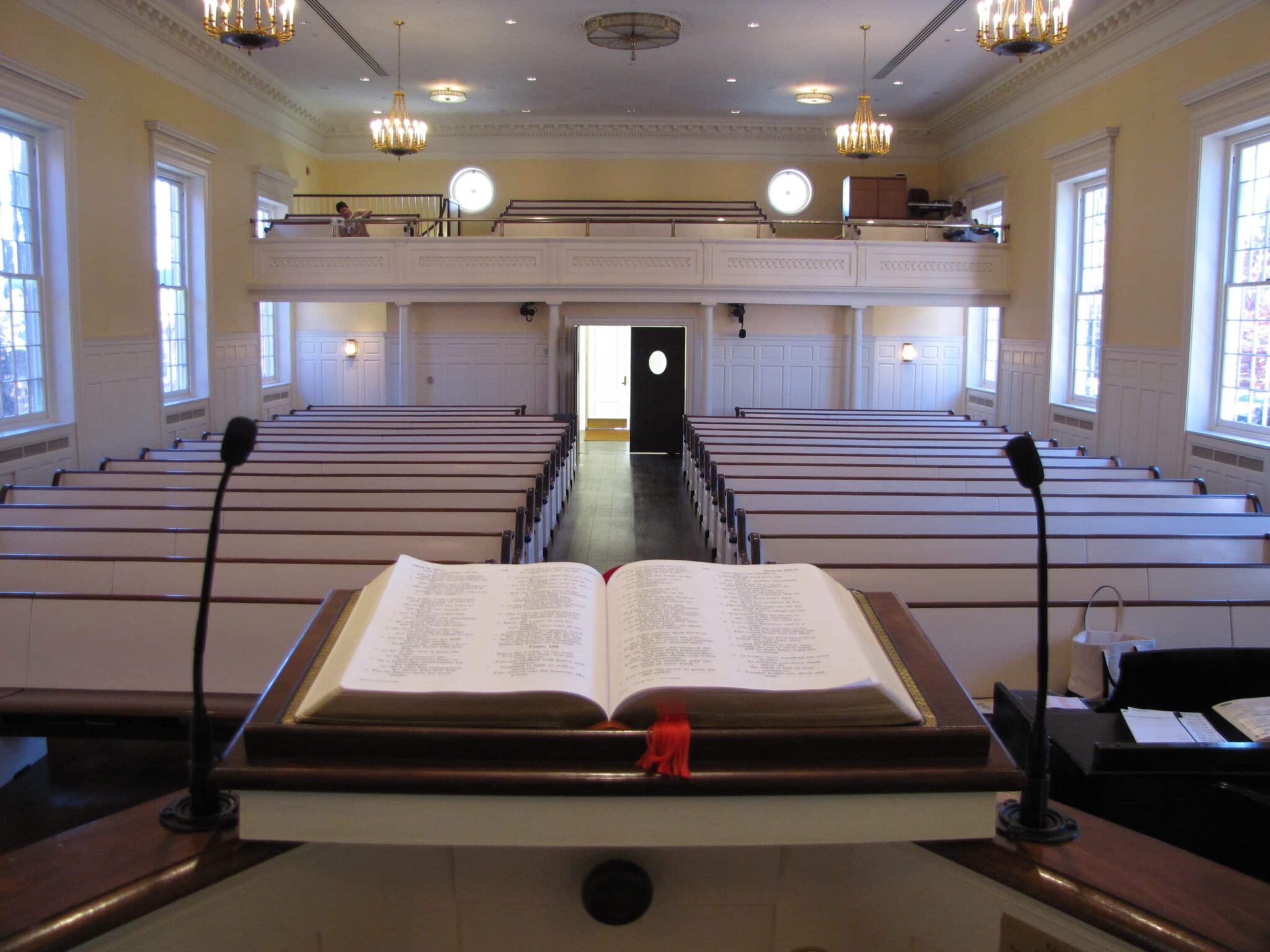Our nation is in the throes of turmoil: a global plague, a contested election, civil unrest, protestors storming the Capitol, a fly-by-night (second) impeachment effort, the almost-overnight erosion of one of our most treasured rights (free speech), and much more. We are in a crisis.
The sad reality is, many don’t recognize that none of those things are the true crisis facing us. They are merely the symptoms. The true crisis is found in the pulpits: A fundamental degeneration in the preservation, protection, and proclamation of Holy Scripture. Until that crisis is confronted and corrected, our nation will keep groaning under the bondage of her corruption.
Walt Kaiser sounded the warning decades ago, but few had ears to hear. The twin pillars of Christian preaching—hermeneutics and homiletics—were under attack. Once those pillars were corrupted, pulpits were corrupted. Once pulpits were corrupted, churches began churning out “cultural Christians” whose passions for lesser things (political or otherwise) superseded their passion for Christ. Now, many Christians are more passionate about advancing an earthly kingdom (USA) than Christ’s Kingdom.
Until the pulpits change, nothing will change. The corrective measure is simple: Pure and faithful expository preaching.
Thousands of articles have been written on the need for expository preaching. Yet, no one offers a precise definition. No one traces the problem to its original roots. No one pinpoints where sermons depart from exposition. No one offers a step-by-step method of how to do it. We sound the battle cry of “Expository Preaching” as the cure-all, but we don’t equip anyone on precisely what it is or how to implement it. My intention, beginning with this article, is to take you on a journey that will help you accomplish three things: (1) interpret Scripture’s proclamations with accuracy; (2) discover the timeless principle in Scripture’s proclamations; and, (3) apply Scripture’s proclamations with power today. The Holy Spirit has used these principles throughout history to awaken people, congregations, and even whole societies, and the opportunity stands before us for another awakening today.
What is Christian Proclamation?
Christian proclamation is declaring with authority that which God has spoken. The Greek word, “preach” (κηρύσσω), means “to herald” or “to announce.” Christian preachers are the King’s heralds. As heralds, our God-given task is single: To declare what God has spoken: nothing more; nothing less. Christian preaching is not what you think or feel. Rather, it is the powerful declaration of what the King has spoken. Let me undergird this assertion with 2 brief examples from Scripture, one OT and one NT.
First, the OT people of God had been in captivity many years. They were ignorant of God’s Word. God sent Ezra to them. Nehemiah 8:8 says, “They read from the Book, the Law of God, clearly, and they gave the sense, so that the people understood the reading.“ They read what God wrote. They gave the sense of what God wrote. They helped the people understand what God wrote. That’s the anecdote for correcting a crisis.
Second, the fundamental NT text on preaching is 2 Timothy 3:16. Verse 16 states, “All Scripture is breathed out by God.” The Greek word for “breathed out by God” is θεόπνευστος. It is made up of two words: Theo (God) + pneustos (breathed-out). This speaks of the divine origin of Holy Scripture. Because Scripture comes from the very breath of God, Paul charges Timothy—and us—to “preach the Word.” Therefore, every genuine preacher must interpret and apply Holy Scripture in such a way that preserves, protects, and proclaims the biblical author’s original intent.
Crisis in Hermeneutics
Rarely do we hear God’s single meaning extracted, exalted, and expounded. Rather, we hear man’s opinions, man’s agendas, and man’s speculations mingled with God’s sacred text(s). This crisis in hermeneutics has profound implications. Think of hermeneutics as the “science” of determining what the text meant at the time it was written. I use the word “science” in this sense: A set rules for interpretation which are testable, verifiable, and repeatable.
At the heart of the issue is the difference between these 2 questions:
- What did the text mean in its historical context?
- What does the text mean to me?
These are 2 different questions entirely, and you must keep them separate. In fact, eliminate the second question altogether. It creates chaos. It produces as many meanings as there are readers, which is precisely why we have the crisis (both in the pulpit and in society–the former corresponding to the latter). A person can hear 10 sermons preached from the same text, and may hear 10 different meanings. Why? Because Christian preachers approach Scripture asking, “What does this text mean to me?” rather than “What did the author mean on the day he wrote it?”
Trust the principle imbedded in Nehemiah 8:8: (1) read the Scripture; (2) give the author’s original intent; and, (3) apply it in a way the people understand.
Crisis in Homiletics
I said, “Apply it in a way the people understand,” which brings us to the second crisis in Christian proclamation: Homiletics. Think of homiletics as the “art” of presenting the biblical author’s intent. Homiletics flows forth from your hermeneutic.
Corrupt hermeneutics will breed corrupt homiletics.
How do you present the correct interpretation (hermeneutic) in a responsible way that bridges the gap between what the text meant “then” and the significance of that text “now?” Together, we will walk through a step-by-step process to do that. Don’t fall into the trap of trying to “make” a text relevant. Scripture is—by it’s God-breathed nature—relevant. Our task is to: (1) extract the single meaning; (2) determine the timeless principle imbedded within that single meaning; and, (3) apply that timeless principle to present-day mankind.
This is our task. This is the only task that has ever been successful in fundamentally correcting a crisis (personal, ecclesiastical, or societal). My next article will show you, scripturally and historically, why this is true and how it plays out.




